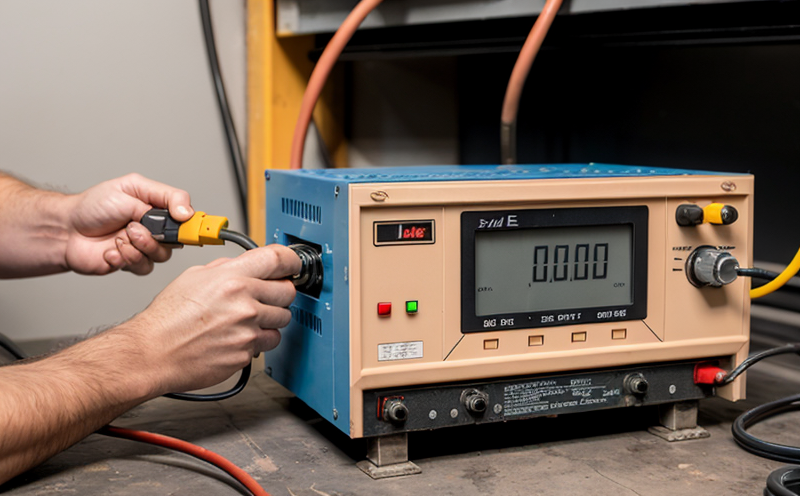IEC 60749-25 Die Temperature Humidity Bias Testing
The IEC 60749-25 standard specifies requirements and test methods to verify the electrical performance of semiconductor dies under temperature, humidity, and bias stress conditions. This is critical for ensuring that microchips meet rigorous durability and reliability standards in real-world environments.
Die-Level Electrical & Functional Testing, particularly using IEC 60749-25, focuses on evaluating how the die will perform under combined thermal and environmental stresses, such as humidity and bias voltage. This testing ensures that microchips can operate reliably over a wide range of conditions, including those encountered in harsh environments.
The test is conducted by placing the semiconductor die into an environmentally controlled chamber where temperature and humidity are precisely regulated. The die is subjected to varying stress levels while being biased electrically. The purpose is to simulate real-world operating conditions and identify potential weaknesses or failure modes before the die is integrated into a larger circuit.
The testing procedure involves several key steps: first, the die is prepared by cleaning it thoroughly to ensure no contaminants interfere with the test results. Next, the die is mounted onto a suitable carrier using conductive epoxy or other methods that prevent short circuits and provide stable electrical connections. Once mounted, the die is placed into the environmental chamber.
The temperature within the chamber can be controlled precisely over a wide range, typically from -40°C to 150°C, with humidity levels controlled between 25% and 98%. The bias voltage applied varies depending on the type of semiconductor being tested but is generally in the range of 1V to 30V. The test duration can vary widely based on the specific requirements of the die or microchip design.
During the test, a series of electrical measurements are taken at various intervals. These include leakage current, forward voltage, and resistance values. The data collected is analyzed to determine if the die meets all specified performance criteria under these stress conditions. If any failure points are identified, they can be addressed before further development or production.
The results of this testing provide critical insights into the long-term reliability of semiconductor devices. This ensures that products meet stringent quality standards and can withstand the rigors of use in various applications, from consumer electronics to industrial equipment.
Compliance with IEC 60749-25 is essential for manufacturers who are seeking to enter international markets or ensure their products meet global safety and performance standards. This testing method helps to reduce the risk of product failures in the field, which can lead to costly recalls and reputation damage.
For quality managers and compliance officers, this test ensures that all components used meet the highest standards for reliability and durability. For R&D engineers, it provides critical data on how different materials or designs will perform under stress conditions. This information is invaluable in optimizing product design and improving overall performance.
Why It Matters
The IEC 60749-25 test is crucial for ensuring that semiconductor dies can operate reliably in a wide range of environmental conditions. This testing helps to identify potential failure points before the die is integrated into larger circuits, reducing the risk of product failures and improving overall quality.
By simulating real-world operating conditions, this test provides critical data on how different materials or designs will perform under stress conditions. This information is invaluable in optimizing product design and improving overall performance. Without such testing, there would be a higher likelihood of field failures leading to costly recalls and reputation damage.
The results of IEC 60749-25 testing are essential for manufacturers who are seeking to enter international markets or ensure their products meet global safety and performance standards. This ensures that all components used in the manufacturing process meet the highest standards for reliability and durability.
Why Choose This Test
The IEC 60749-25 test is an essential tool for quality managers, compliance officers, R&D engineers, and procurement professionals who need to ensure that semiconductor dies meet rigorous durability and reliability standards in real-world environments. This testing method provides critical insights into the long-term reliability of semiconductor devices.
For manufacturers looking to enter international markets or ensure their products meet global safety and performance standards, compliance with IEC 60749-25 is essential. This ensures that all components used in the manufacturing process meet the highest standards for reliability and durability, which can lead to increased customer trust and loyalty.
For R&D engineers, this test provides critical data on how different materials or designs will perform under stress conditions. This information is invaluable in optimizing product design and improving overall performance. Without such testing, there would be a higher likelihood of field failures leading to costly recalls and reputation damage.
Environmental and Sustainability Contributions
The IEC 60749-25 test plays an important role in environmental sustainability by helping manufacturers produce more reliable and durable products. This reduces the need for frequent product replacements, which can help minimize electronic waste.
By ensuring that semiconductor dies meet rigorous durability and reliability standards, this testing method helps to reduce the risk of product failures in the field. This leads to increased customer satisfaction and trust, which is essential for building a positive brand reputation.
The results of IEC 60749-25 testing are also valuable for manufacturers who are seeking to enter international markets or ensure their products meet global safety and performance standards. This ensures that all components used in the manufacturing process meet the highest standards for reliability and durability, which can lead to increased customer trust and loyalty.





